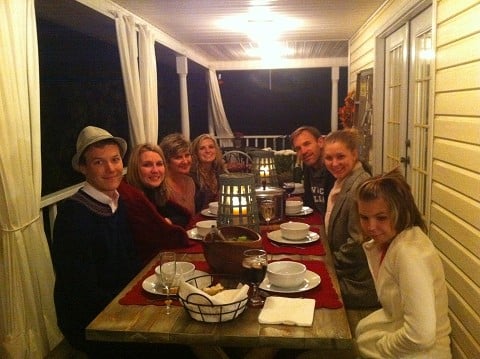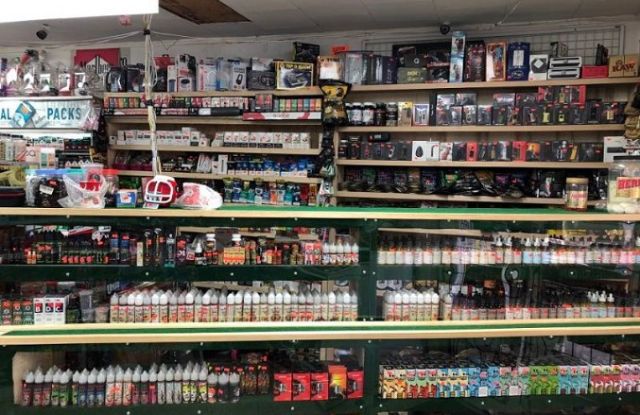Blind spots and baggage

It’s one thing to have baggage – a chip on your shoulder, insecurities, relational dysfunction – but it’s another thing to be oblivious about the baggage.
My lack of intimacy with God when I was a young man probably related to my issues with authority, but it wasn’t until I was in my 30’…
By Seth Barnes
 It’s one thing to have baggage – a chip on your shoulder, insecurities, relational dysfunction – but it’s another thing to be oblivious about the baggage.
It’s one thing to have baggage – a chip on your shoulder, insecurities, relational dysfunction – but it’s another thing to be oblivious about the baggage.My lack of intimacy with God when I was a young man probably related to my issues with authority, but it wasn’t until I was in my 30’s that I began to see it and wrestle with it.
Psychologists see this phenomenon all the time. They’ve come up with a tool called the Johari House (or Window). They envision four rooms:
Room 1 is the part of ourselves that we see and others see.Room 2 is
the aspects that others see but we are not aware of.Room 3 is the most
mysterious room in that the unconscious or subconscious part of us is
seen by neither ourselves nor others.Room 4 is our private space, which
we know but keep from others.
Bad things happen to people when they’re young and relatively defenseless, and a standard coping mechanism is to push them down into the realm of the subconscious where they become blind spots and baggage.
We drag so much baggage with us through life. I watch so many men feel backed into a corner and judged by people at work. And in my mind’s eye I see them instantly back at that insecure and vulnerable place from childhood. Mom wasn’t there – abuse happened and vows were made, vows that led to a life of self-protection or maybe bitterness.
It’s far more pervasive in society than many of us may realize. Paul Van Der Werf and I were talking about all the issues that 20-somethings seem to have. He had a fresh example of that. “When I went to Wheaton 12 years ago,” he said, “it had three counselors to help students. Now that number is up to 13 and they have their hands full.”
Blind spots tend to exist outside community. People who have put up high walls around their private lives have just one perspective on life – their own. But life is complicated – we need multiple perspectives to see our blind spots.
That’s why I love our family night on Wednesdays at the Barnes house. We lay our lives out there for inspection and prayer. We’re committed to traveling light and doing so in the kind of community that identifies blind spots.
How about you? Any baggage you want to get rid of? Have you checked with friends about blind spots lately?


Good reminder Seth, to just keep my heart in tune with God’s own and stop the unnecessary trash from piling up on my shoulders. Friends have been coming over once a week now to just sit up in our small attic and share stories from their past week. I always feel refreshed afterwards because of the deliberate encouragement, prayer and praise we offer up to Jesus…
Love the idea of traveling light though it requires the hard work of getting rid of the dead bodies of performance & wounds, and learning to wait on God and his wonder. Wonder and trust.
Great word to start a day. Thanks Seth.
(Karen has a gift for hospitality…it rings out in this picture and so many others. Wow wee.)
Can you unpack “we lay our lives out there for inspection”. What does that concretely look like.
Thanks, Seth.
Sure Hans. Last night for example, we went around the table and everyone shared something that was troubling them at a deepest level.
There were relational issues. One of my kids doesn’t know who to process confidential matters with – her coach may have a conflict of interest in the matter. I shared how I haven’t been sleeping at nights. Two of my daughters are graduating from school and face anxieties.
We were respectful in listening and then prayed.
I don’t where people go with this stuff if not a safe, caring community.
Hey my brother…I had a several hour conversation with our mutual friend and mentor (at least for me) Dr. Emory Griffin just the other day. I mentioned you in the fray and he would be so proud to see you teaching some communication theory here. 🙂 For whatever it is worth I am sleeping better. But for me that is because I’m taking Catholic vows more seriously and trying to avoid the intergalactic spiritual wars. I’m going to be a grandfather again. Mackenzie has a baby on the way. And that gives me joy.
Love to the Barnes and for God’s sake please tell me the kitchen is being cared for. I’m long overdo to clean it friend.
learned about joharis window years ago its all about living in the light.another aspect of light is its speed we dont heal as fast as it travels.